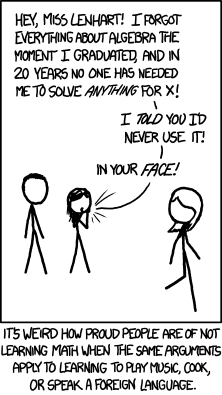Quite simply, you will not be able to put this on your windows and power your house. The efficiency, ~4%, is just too low, though it is typical of organic polymer PV. (For photovoltaic technology, the efficiency is the proportion of electric energy delivered by the system to the optical energy that was incident on the system.) For comparison, conventional flat panel silicon is usually around 15-20% efficient. On the low cost side of things, thin film panels are around 8-12% efficient, and on the high-cost side, multijunction cells are >40% You can see the record efficiencies in the chart below. (To be clear, these are the world records for various technologies, and only include the cell itself, not any other losses in a complete system. Commercial units have lower performance.)
(Image from National Renewable Energy Laboratory)
Why is the efficiency of the UCLA technology so low? Most of the reason is obvious: the cells are transparent. The paper cites the transparency in the visible spectrum as 61-66%, depending on wavelength. In other words, almost two-thirds of visible light is passing directly through the photovoltaic. This light cannot possibly be converted into electrical energy.
Furthermore, not all photons are created equal. The energy of a photon is proportional to its frequency. So, high-frequency ultraviolet light has more energy than visible light, which has more energy than infrared light. The IR light being targeted by this photovoltaic simply has very low energy, though the UV light also being converted is high-energy.
Of course, the energy from one photon doesn't give you the whole picture. You also care about the total number of photons in order to get the total power. So what is the distribution of power across the solar spectrum?
(Image from Lawrence Berkeley National Lab)
I should add here that the researchers obviously are aware that transparent phovoltaics won't have high efficiency. There are some great applications driving this kind of technology. While windows from these cells won't eliminate your energy bill, they will lower it. Plus, since they're absorbing IR light, your house will heat up less, and you'll need less air-conditioning. Integrating this technology with electronics is even more interesting. Think of the typical solar-powered calculator. Instead of having that little strip of PV cells, the actual display can serve as the power source, freeing up real estate on the front of the device. And just imagine using this on a cell phone! You could use the screen of your phone to help keep it charged during the day.
In the end, this is some very clever technology that will have a number of useful applications, but don't expect to see your windows powering your whole house.
*Changing the materials in order to accept longer wavelength, lower frequency light will reduce the amount of energy captured from higher frequency light. I'll have a post later just on this concept, but for now, you'll have to trust me.
(Edited to use a different image of the solar spectrum. The first one I used had some outdated information on it.)





















